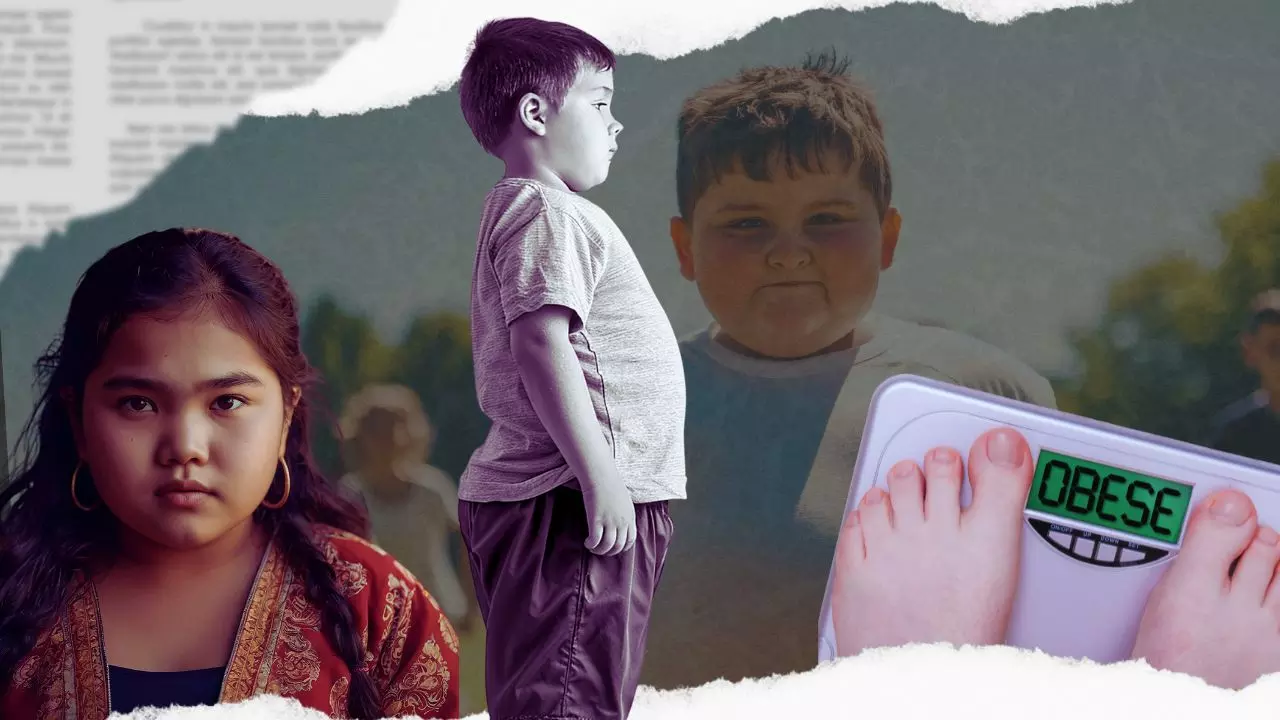
Why you should worry about childhood obesity
India is grappling with a surge in childhood obesity, with 2 out of 10 kids obese or overweight. This episode of Second Opinion dives into this alarming trend

Around two out of 10 children in India are either obese or overweight, and nearly 80 per cent of them remain obese in adulthood. Health experts warn that the country is witnessing a growing public health crisis with rates doubling in the past three decades.
Childhood obesity is defined as having a body mass index (BMI) at or above the 95th percentile for a child’s age and sex. According to the Indian Academy of Paediatrics’ growth chart, it is diagnosed when BMI crosses the adult-equivalent mark of 27. The condition stems largely from imbalances between calorie intake and expenditure, influenced by poor diets, sedentary lifestyles, and, to a smaller extent, genetics.
The impact of childhood obesity is far-reaching. It can lead to early onset of type 2 diabetes, high blood pressure, joint problems, sleep apnoea, and fatty liver disease, posing severe long-term health risks.
Also read: Obesity alert: India rolls out oil and sugar boards at snack stalls
Data shows alarming trends
In children under five years, the combined prevalence of overweight and obesity rose from 1.5 per cent in 2005-06 to 3.4 per cent by 2019-21 — a 126 per cent increase, according to the National Family Health Survey.
Among children aged 5–19 years, a 2023 meta-analysis of 21 studies found that 20.8 per cent were overweight or obese. Projections suggest that by 2035, obesity could double — reaching 20 per cent in boys and 18 per cent in girls.
Urbanization, increased screen time, processed food consumption, and busy parental routines have worsened the crisis, making prevention and management increasingly difficult.
Also read: Private school children in Delhi are more likely to be obese: AIIMS study
Lifestyle and dietary habits
Dr Soundaram V, Consultant Paediatric Endocrinologist at Apollo Children’s Hospitals, highlighted how westernized diets and oversized food portions are driving obesity. “Westernization of diet — rich in fat, salt, and sugar — has become rampant among our children. The balance between calorie intake and expenditure is lost,” she said.
She explained that obesity affects insulin function, leading to rising blood sugar levels over time. “Previously, diabetes was an adult-onset disease. Now, we are seeing type 2 diabetes among teenagers due to obesity and refined flour intake,” she added.
Dr Soundaram warned that other complications, such as hypertension, dyslipidaemia, fatty liver, and polycystic ovarian syndrome in girls, are becoming common even among normal-weight children because of unhealthy diets.
Also read: Cerelac controversy: How harmful is 'added sugar' in baby foods for children?
Parental influence and genetics
While genetics can contribute to obesity, experts say lifestyle and parental behavior play a stronger role. Srividhya, Dietician at Iswarya Hospital, said maternal health and habits influence a child’s risk. “If pre-pregnancy BMI is high, the risk of childhood obesity increases. Unhealthy food cravings during pregnancy also raise that risk,” she noted.
She recommended maintaining a healthy weight during pregnancy through balanced diets, adequate sleep, and physical activity. “Include whole grains, nuts, pulses, and protein-rich foods, and limit junk food and sugary items,” she advised.
Emotional and social impact
Obesity affects more than just physical health. Children often face low self-esteem, social isolation, and poor academic performance.
Dr V Vidhya, Senior Paediatrician at SIMS Hospital, said, “Teenagers who are obese struggle with self-identity and confidence. Low self-esteem leads to stress, overeating, and poor performance.” She stressed that obesity must be addressed with empathy, not blame, as every child deserves supportive guidance rather than criticism.
Also read: Land of obese: 12.5 m children in India have high BMIs, says study
Prevention through family and behaviour change
Experts agree that managing childhood obesity requires a collective approach involving families, schools, and healthcare providers. “Management should be a team-based approach — child, family, and doctor working together,” said Dr Vidhya. “It should be supportive rather than prescriptive.”
She emphasized that parents must lead by example. “Children are poor listeners but great imitators. When parents adopt healthy habits — regular walks, balanced meals — children follow naturally.”
On diet, Dr Vidhya recommended a balanced plate with one-fourth each for fruits, vegetables, grains, and proteins. “Everyone needs about one gram of protein per kilogram of body weight daily,” she explained. “We must restrict sugary beverages, ice creams, chocolates, and ultra-processed snacks.”
Building healthier futures
Experts agree that childhood obesity, if unaddressed, can shape an unhealthy future generation. The solution lies in awareness, early prevention, and sustained behavior change.
If a child or someone you know is struggling with obesity, experts advise consulting a pediatrician or dietitian for guidance on healthier eating and lifestyle choices.
(The content above has been transcribed from video using a fine-tuned AI model. To ensure accuracy, quality, and editorial integrity, we employ a Human-In-The-Loop (HITL) process. While AI assists in creating the initial draft, our experienced editorial team carefully reviews, edits, and refines the content before publication. At The Federal, we combine the efficiency of AI with the expertise of human editors to deliver reliable and insightful journalism.)

